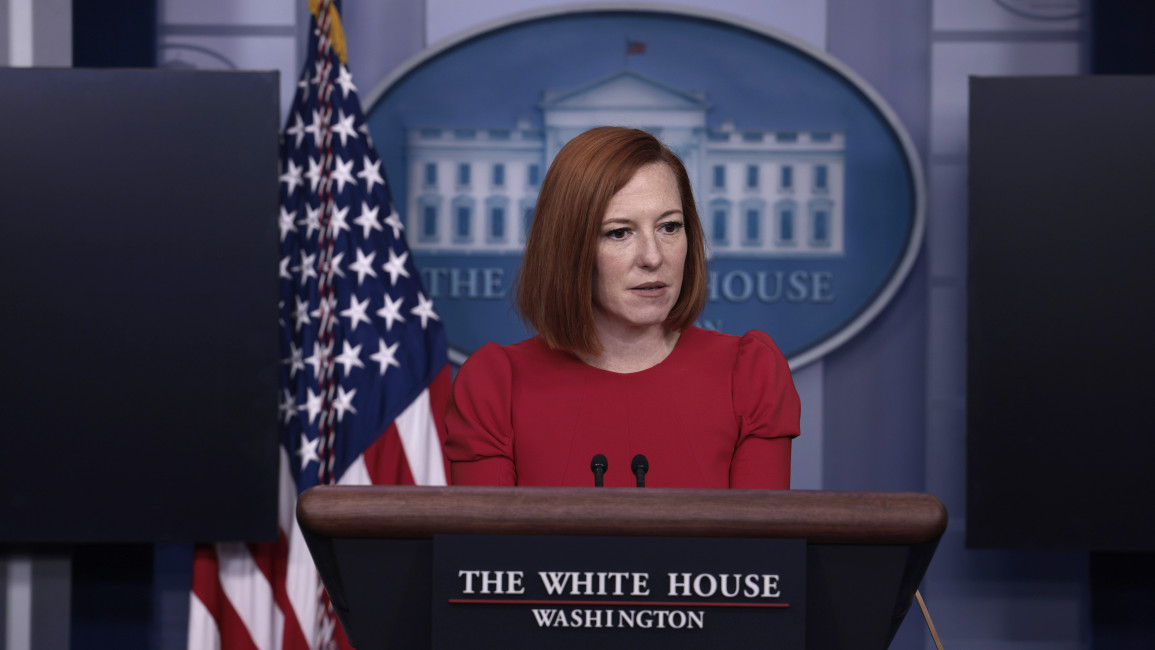Iran nuclear proposals not 'constructive': White House
The White House hit out at Iran on Friday, saying Tehran did not bring "constructive proposals" to the most recent round of negotiations over the revival of the 2015 nuclear deal in Vienna.
"The new Iranian administration did not come to Vienna with constructive proposals," Press Secretary Jen Psaki told a briefing.
The seventh round of international talks over the 2015 deal aimed at putting curbs on Iran's nuclear program ended Friday after five days, with delegations returning to their national capitals before negotiations restart in Austria next week.
Iran had paused the talks in June following the election of ultraconservative President Ebrahim Raisi.
Psaki said the first six rounds had "made progress," but that "Iran's approach this week was not, unfortunately, to try to resolve the remaining issues."
She underscored that "Iran started this new round of negotiations with a new round of nuclear provocations as reported by the" International Atomic Energy Agency (IAEA).
Last week, ahead of the talks, the UN nuclear watchdog said there had been "no progress" in talks with Tehran on disputes over the monitoring of its nuclear program.
Psaki said Iran had "still failed to restore the cooperation and transparency they have degraded in recent months."
She also laid blame on the administration of President Joe Biden's predecessor, Donald Trump, who unilaterally pulled the United States out of the deal, saying, the withdrawal "led to a dramatic and unprecedented expansion of Iran's nuclear program."
"This cannot continue, and the president continues to believe that there is a better alternative," she added.
The landmark accord -- initially agreed between Britain, China, France, Germany Iran, Russia and the United States -- began unravelling in 2018 when Trump pulled out and reimposed sanctions, prompting Iran to start exceeding limits on its nuclear program the following year.
The accord aimed at putting curbs on Iran's nuclear program to ensure it couldn't develop an atomic weapon, in exchange for sanctions relief for Tehran.
Iran has always insisted that its nuclear program is peaceful.
Biden has said he wants to re-enter the deal and the US has been participating in this week's talks indirectly.



